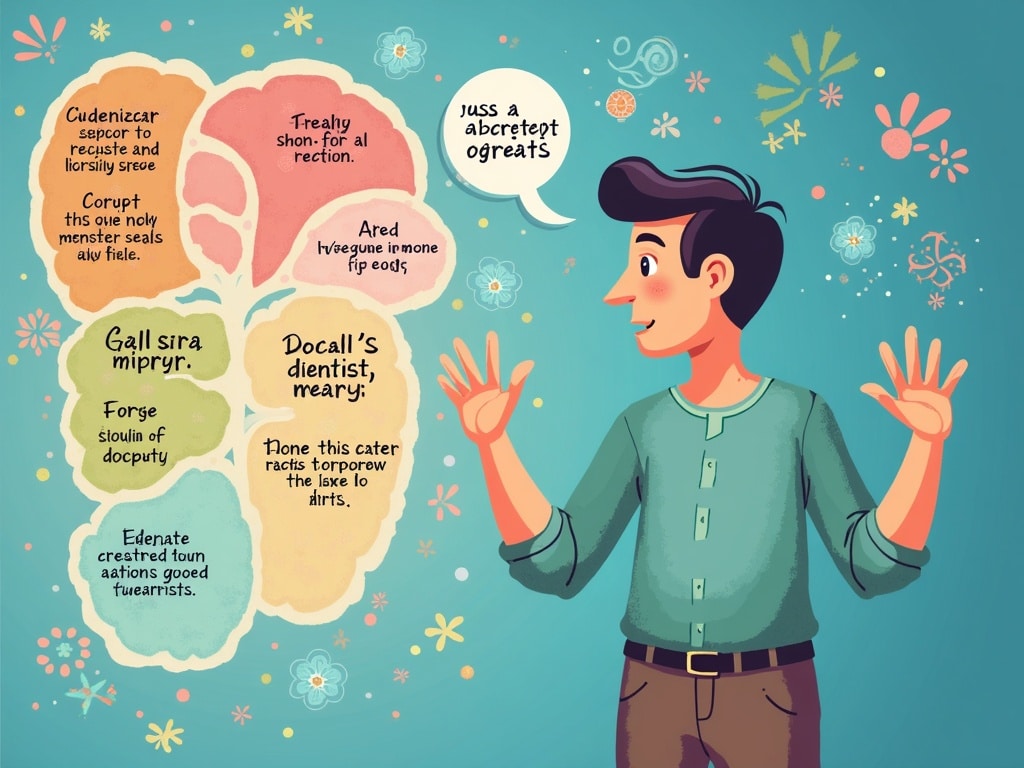Early Signs of Dementia in Men: Recognizing the Subtle Shifts
Imagine a seasoned carpenter, a man who could build a house from the ground up, suddenly struggling to remember how to use a level. Or a financial whiz, the go-to guy for investment advice, now baffled by a simple bank statement. These aren't just senior moments; they could be early whispers of dementia, and recognizing them in men requires a keen eye and a sensitive heart. Dementia, an umbrella term for cognitive decline, manifests differently in everyone, but understanding the nuances of its early presentation in men is crucial for timely diagnosis and support.
Understanding Dementia: More Than Just Memory Loss
Dementia isn't a single disease, but a collection of symptoms that point to a decline in cognitive function. While Alzheimer's disease is the most common form, accounting for 60-80% of cases, other types include vascular dementia, Lewy body dementia, and frontotemporal dementia. Each type has its own signature, but they all share a common thread: they steal away a person's ability to think, remember, and reason clearly. According to the Alzheimer's Association, more than 6 million Americans are living with Alzheimer's.
Why Focus on Men?
While dementia affects both men and women, studies suggest that men may experience certain early symptoms differently or be less likely to seek help initially. This could be due to societal expectations around stoicism and self-reliance, making it harder to admit vulnerability or cognitive struggles. Moreover, some research indicates that men and women may process cognitive decline differently, leading to variations in the presentation of early signs. Recognizing these differences can be life-changing.
Subtle Shifts: Identifying Early Warning Signs
The insidious nature of dementia lies in its gradual onset. It's not a sudden switch, but a slow dimming of the lights. Recognizing the early signs requires paying close attention to subtle changes in behavior, personality, and cognitive abilities.
1. Memory Impairment That Disrupts Daily Life
Occasional forgetfulness is a normal part of aging. However, dementia-related memory loss goes beyond misplacing keys or forgetting a name. It involves:
- Asking the same questions repeatedly, even after receiving an answer.
- Forgetting important dates, events, or appointments.
- Relying heavily on memory aids like notes or electronic devices, even for simple tasks.
- Difficulty remembering newly learned information.
2. Challenges in Planning or Problem-Solving
Men who were once adept at managing finances, organizing projects, or following recipes may start to struggle with these tasks. This can manifest as:
- Difficulty following a familiar recipe or set of instructions.
- Trouble managing finances or paying bills.
- Taking much longer to complete tasks that used to be quick and easy.
3. Confusion with Time or Place
Disorientation is a common early symptom. This can include:
- Losing track of dates, seasons, or the passage of time.
- Getting lost in familiar places.
- Difficulty understanding where they are or how they got there.
4. Difficulty with Visual and Spatial Relationships
This goes beyond simple vision problems. Individuals may struggle with:
- Judging distances, which can lead to difficulty driving.
- Reading or understanding visual information, such as maps or diagrams.
- Recognizing familiar faces or objects.
5. Problems with Words: Speaking or Writing
Communication can become a major challenge. This may involve:
- Difficulty finding the right words to express themselves.
- Using incorrect words or substituting them with similar-sounding words.
- Struggling to follow or participate in conversations.
- Difficulty writing coherent sentences.
6. Misplacing Things and Losing the Ability to Retrace Steps
While everyone misplaces things occasionally, people with dementia may:
- Put things in unusual places.
- Be unable to retrace their steps to find lost items.
- Accuse others of stealing when they can't find something.
7. Decreased or Poor Judgment
This can manifest in various ways, such as:
- Making poor financial decisions, such as giving away large sums of money.
- Dressing inappropriately for the weather.
- Falling for scams or schemes.
8. Withdrawal from Social Activities
Apathy and loss of interest in hobbies or social activities are common early signs. Men may:
- Spend more time alone and less time socializing with friends and family.
- Lose interest in hobbies or activities they once enjoyed.
- Seem less engaged in conversations or events.
9. Changes in Mood and Personality
Dementia can significantly impact mood and personality. This can include:
- Becoming easily agitated, anxious, or irritable.
- Experiencing sudden mood swings.
- Becoming more suspicious or paranoid.
- Exhibiting a lack of empathy or concern for others.

10. Subtle Changes in Executive Function
Executive function refers to high-level cognitive processes like planning, organization, and decision-making. Subtle changes can significantly impact daily life. These include:
- Difficulty multitasking or managing multiple tasks simultaneously.
- Problems adapting to unexpected changes or deviations from routine.
- Impaired decision-making, even in simple situations.
- Reduced ability to initiate or start new projects or activities.
- Increased impulsivity or difficulty controlling behavior.
Beyond the Checklist: The Importance of Context
It's important to remember that experiencing one or two of these symptoms doesn't automatically mean a person has dementia. Stress, depression, medication side effects, and other medical conditions can also cause similar symptoms. The key is to look for a pattern of decline and consider the individual's overall health and lifestyle.
Taking Action: What to Do If You Suspect Dementia
If you're concerned about a loved one, the most important thing is to encourage them to see a doctor. A comprehensive medical evaluation can help determine the cause of their symptoms and rule out other possible conditions.
1. Talk to a Doctor
A doctor can perform a thorough physical and neurological exam, as well as cognitive tests to assess memory, language, and other cognitive functions. They may also order brain scans, such as MRI or CT scans, to look for any structural changes in the brain.
2. Be Supportive and Understanding
It can be scary and upsetting to face the possibility of dementia. Offer your loved one support and understanding throughout the diagnostic process. Let them know that you're there for them, no matter what.
3. Explore Treatment Options
While there is no cure for most types of dementia, there are treatments that can help manage symptoms and improve quality of life. These may include medications, therapies, and lifestyle changes.
4. Plan for the Future
A dementia diagnosis can raise many questions and concerns about the future. It's important to start planning early, including:
- Legal and financial planning.
- Exploring long-term care options.
- Making decisions about end-of-life care.
The Power of Early Detection
Early detection of dementia is crucial for several reasons:
- It allows individuals and their families to plan for the future and make informed decisions about care.
- It provides access to treatments that can help manage symptoms and improve quality of life.
- It allows individuals to participate in clinical trials and research studies that may lead to new treatments and cures.
- It gives individuals the opportunity to address legal and financial matters while they still have the cognitive capacity to do so.
Hope and Support: Living Well with Dementia
While a dementia diagnosis can be challenging, it's important to remember that it's not the end of the world. With the right support and care, individuals with dementia can continue to live meaningful and fulfilling lives. There are many resources available to help individuals with dementia and their families, including:
- The Alzheimer's Association: Provides information, support, and resources for individuals with Alzheimer's disease and their families.
- The Lewy Body Dementia Association: Offers support and education for individuals with Lewy body dementia and their caregivers.
- The Association for Frontotemporal Degeneration: Provides resources and support for individuals with frontotemporal dementia and their families.
Recognizing the early signs of dementia in men requires a combination of awareness, sensitivity, and proactive action. By understanding the subtle shifts and taking steps to seek diagnosis and support, we can empower men and their families to navigate the challenges of dementia with dignity and grace. The journey may be difficult, but it's not one that needs to be taken alone.

